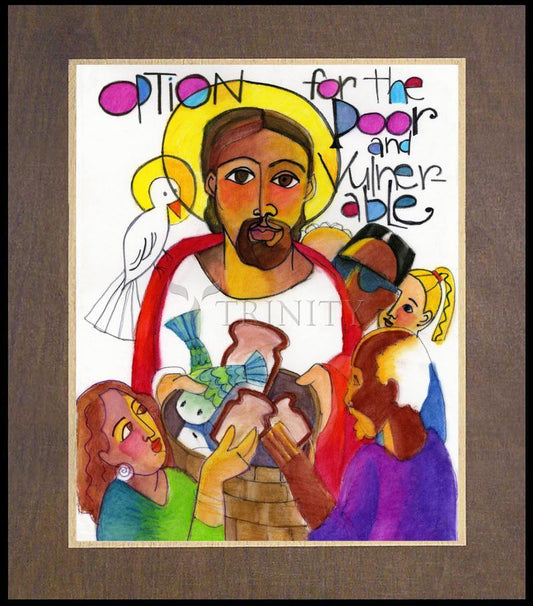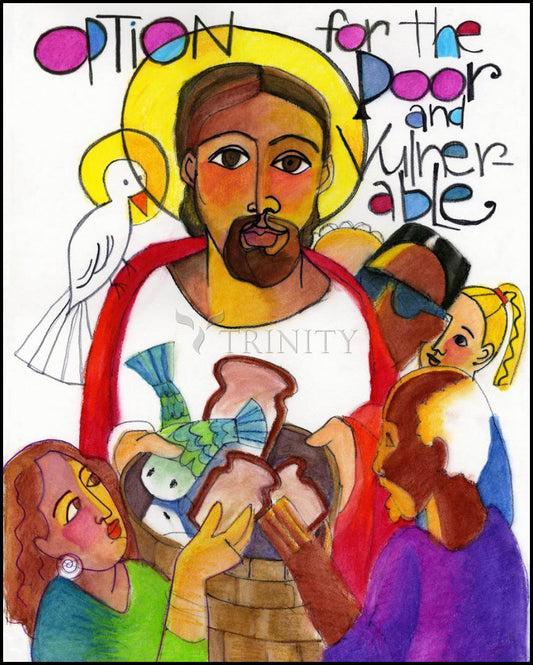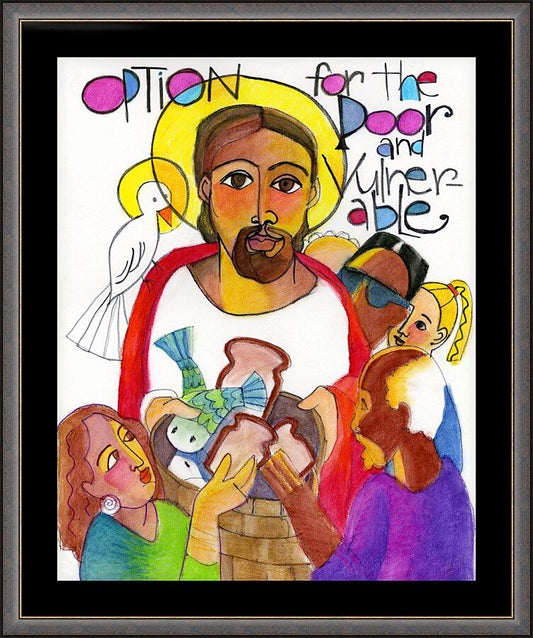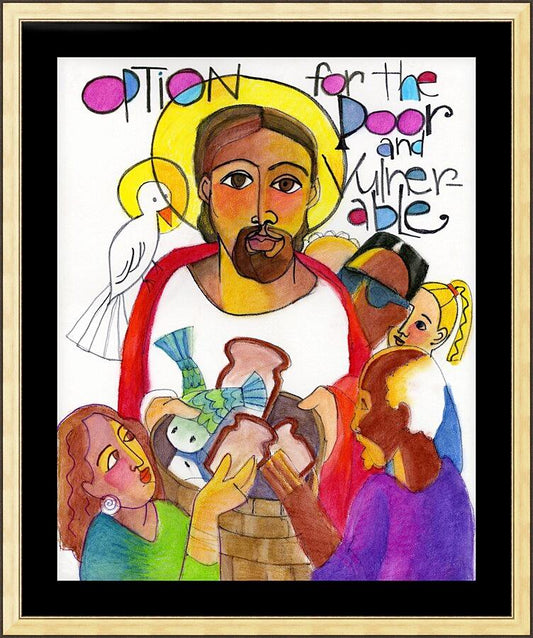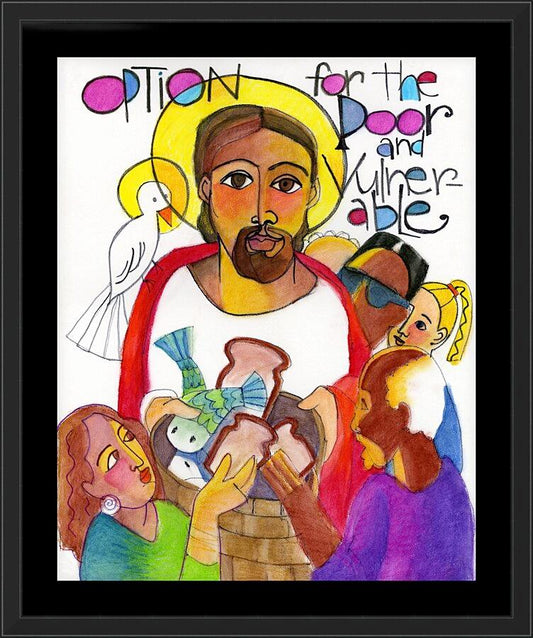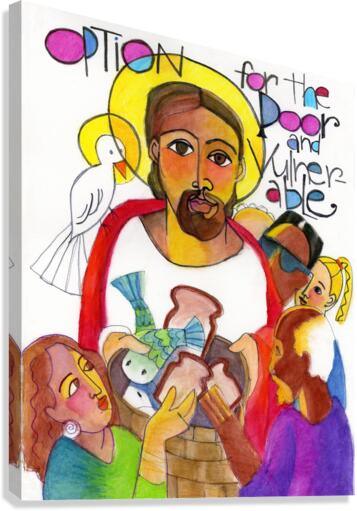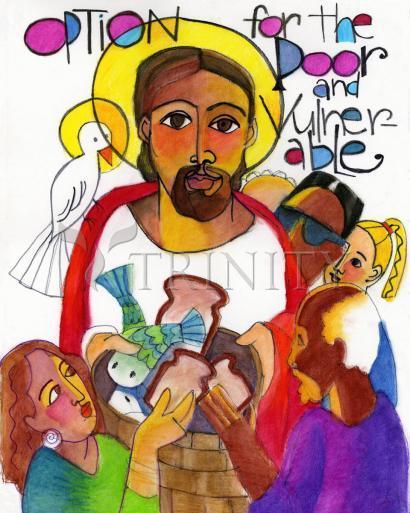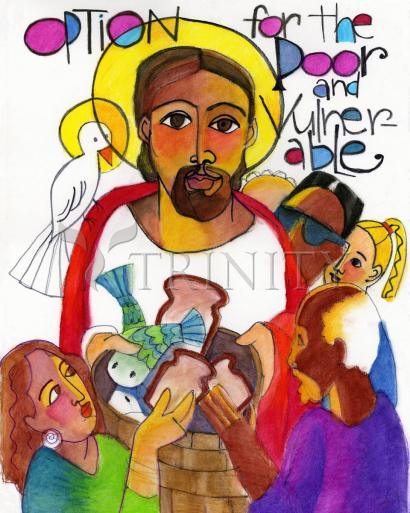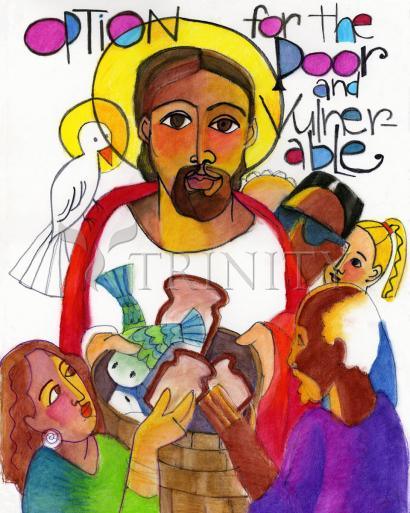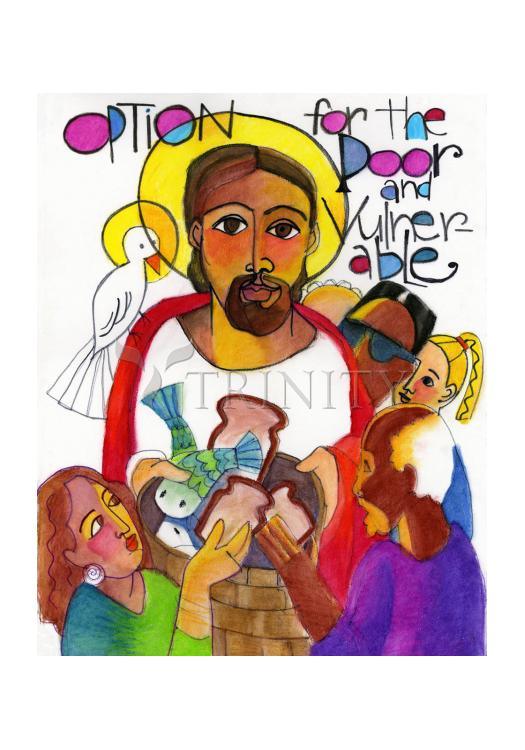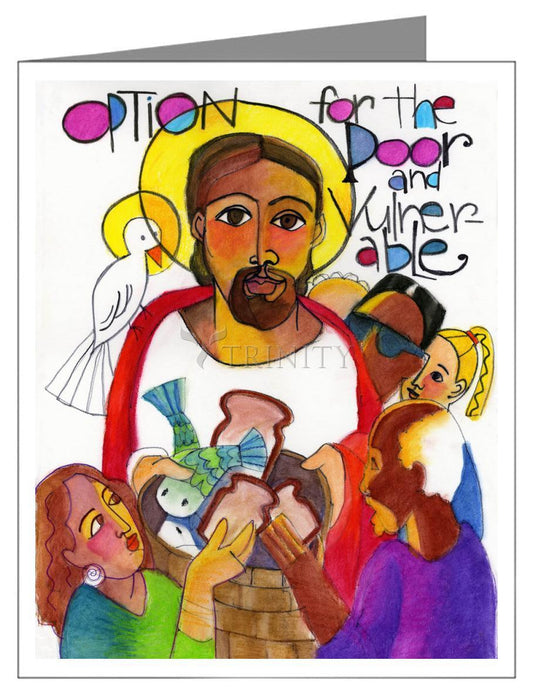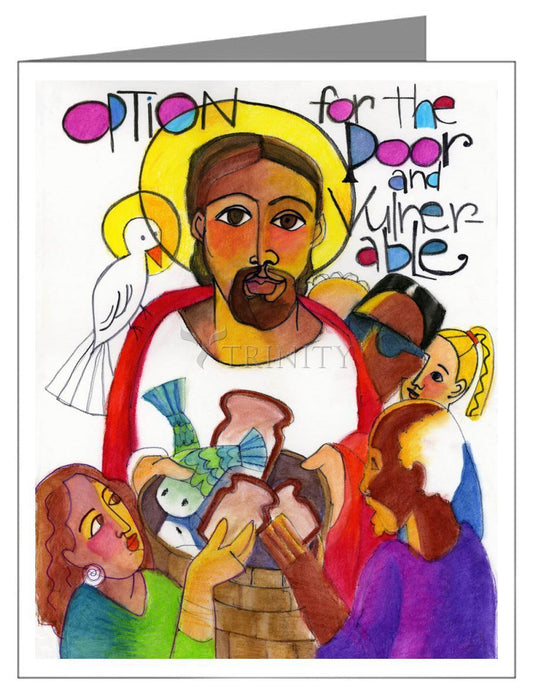When there is question of defending the rights of individuals, the poor and badly off have a claim to especial consideration. The richer class have many ways of shielding themselves, and stand less in need of help from the State; whereas the mass of the poor have no resources of their own to fall back upon, and must chiefly depend upon the assistance of the State.
On the Condition of Labor (Rerum Novarum"), #37
The obligation to provide justice for all means that the poor have the single most urgent economic claim on the conscience of the nation.
Economic Justice for All, #86
In teaching us charity, the Gospel instructs us in the preferential respect due to the poor and the special situation they have in society: the more fortunate should renounce some of their rights so as to place their goods more generously at the service of others.
A Call to Action (Octogesima Adveniens"), #23
"He who has the goods of this world and sees his brother in need and closes his heart to him, how does the love of God abide in him?" Everyone knows that the Fathers of the Church laid down the duty of the rich toward the poor in no uncertain terms. As St. Ambrose put it: "You are not making a gift of what is yours to the poor man, but you are giving him back what is his. You have been appropriating things that are meant to be for the common use of everyone. The earth belongs to everyone, not to the rich."
On the Development of Peoples (Populorum Progressio"), #23
Therefore everyone has the right to possess a sufficient amount of the earth's goods for themselves and their family. This has been the opinion of the Fathers and Doctors of the church, who taught that people are bound to come to the aid of the poor and to do so not merely out of their superfluous goods. Persons in extreme necessity are entitled to take what they need from the riches of others.
Faced with a world today where so many people are suffering from want, the council asks individuals and governments to remember the saying of the Fathers: "Feed the people dying of hunger, because if you do not feed them you are killing them," and it urges them according to their ability to share and dispose of their goods to help others, above all by giving them aid which will enable them to help and develop themselves.
The Church in the Modern World (Gaudium et Spes"), #69
Love for others, and in the first place love for the poor, in whom the Church sees Christ himself, is made concrete in the promotion of justice.
On the Hundredth Year (Centesimus Annus"), #58
The needs of the poor take priority over the desires of the rich; the rights of workers over the maximization of profits; the preservation of the environment over uncontrolled industrial expansion; the production to meet social needs over production for military purposes.
Economic Justice for All, #94
The obligation to provide justice for all means that the poor have the single most urgent economic claim on the conscience of the nation.
Economic Justice for All, #86
The primer purpose of this special commitment to the poor is to enable them to become active participants in the life of society. It is to enable all persons to share in and contribute to the common good. The "option for the poor," therefore, is not an adversarial slogan that pits one group or class against another. Rather it states that the deprivation and powerlessness of the poor wounds the whole community. The extent of their suffering is a measure of how far we are from being a true community of persons. These wounds will be healed only by greater solidarity with the poor and among the poor themselves.
Economic Justice for All, #88
"Excerpts from United States Conference of Catholic Bishops



